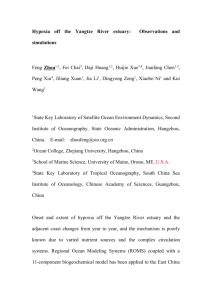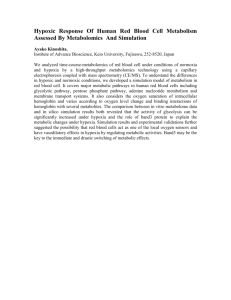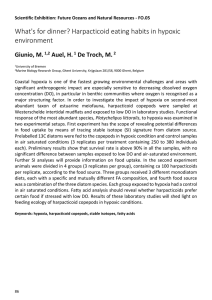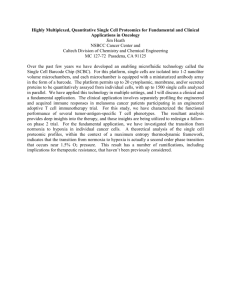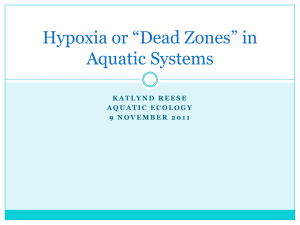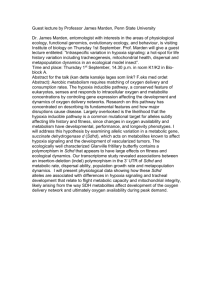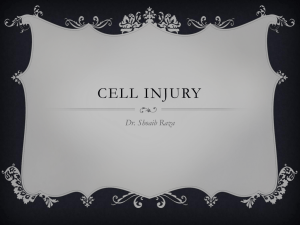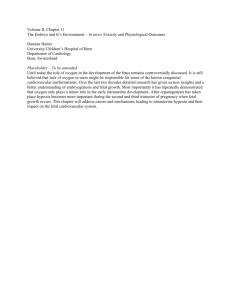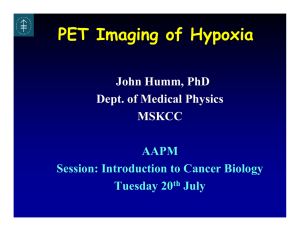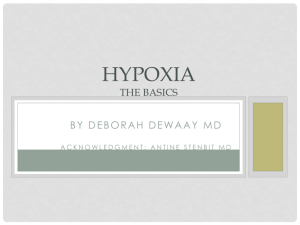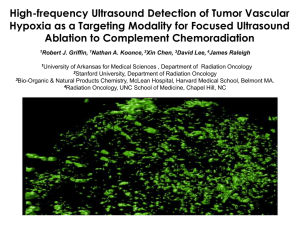Hypoxia - Working with ABI (Acquired Brain Injury)
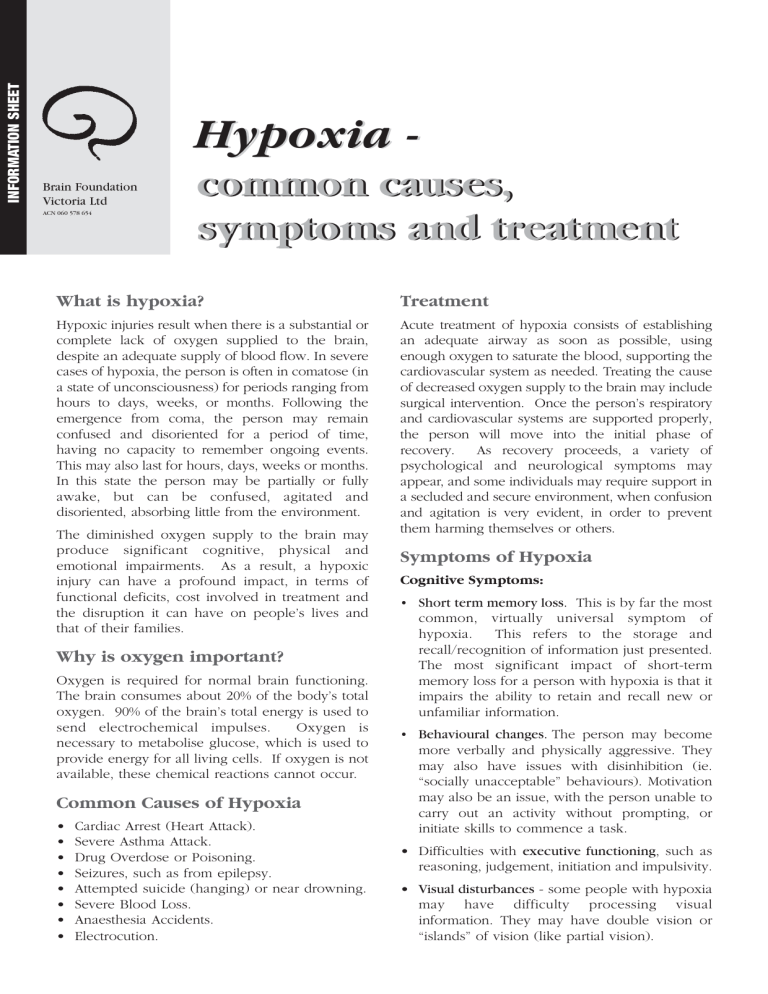
Brain Foundation
Victoria Ltd
ACN 060 578 654
What is hypoxia?
Hypoxic injuries result when there is a substantial or complete lack of oxygen supplied to the brain, despite an adequate supply of blood flow. In severe cases of hypoxia, the person is often in comatose (in a state of unconsciousness) for periods ranging from hours to days, weeks, or months. Following the emergence from coma, the person may remain confused and disoriented for a period of time, having no capacity to remember ongoing events.
This may also last for hours, days, weeks or months.
In this state the person may be partially or fully awake, but can be confused, agitated and disoriented, absorbing little from the environment.
The diminished oxygen supply to the brain may produce significant cognitive, physical and emotional impairments. As a result, a hypoxic injury can have a profound impact, in terms of functional deficits, cost involved in treatment and the disruption it can have on people’s lives and that of their families.
Why is oxygen important?
Oxygen is required for normal brain functioning.
The brain consumes about 20% of the body’s total oxygen. 90% of the brain’s total energy is used to send electrochemical impulses. Oxygen is necessary to metabolise glucose, which is used to provide energy for all living cells. If oxygen is not available, these chemical reactions cannot occur.
Common Causes of Hypoxia
• Cardiac Arrest (Heart Attack).
• Severe Asthma Attack.
• Drug Overdose or Poisoning.
• Seizures, such as from epilepsy.
• Attempted suicide (hanging) or near drowning.
• Severe Blood Loss.
• Anaesthesia Accidents.
• Electrocution.
Treatment
Acute treatment of hypoxia consists of establishing an adequate airway as soon as possible, using enough oxygen to saturate the blood, supporting the cardiovascular system as needed. Treating the cause of decreased oxygen supply to the brain may include surgical intervention. Once the person’s respiratory and cardiovascular systems are supported properly, the person will move into the initial phase of recovery. As recovery proceeds, a variety of psychological and neurological symptoms may appear, and some individuals may require support in a secluded and secure environment, when confusion and agitation is very evident, in order to prevent them harming themselves or others.
Symptoms of Hypoxia
Cognitive Symptoms:
• Short term memory loss.
This is by far the most common, virtually universal symptom of hypoxia. This refers to the storage and recall/recognition of information just presented.
The most significant impact of short-term memory loss for a person with hypoxia is that it impairs the ability to retain and recall new or unfamiliar information.
• Behavioural changes.
The person may become more verbally and physically aggressive. They may also have issues with disinhibition (ie.
“socially unacceptable” behaviours). Motivation may also be an issue, with the person unable to carry out an activity without prompting, or initiate skills to commence a task.
• Difficulties with executive functioning , such as reasoning, judgement, initiation and impulsivity.
• Visual disturbances - some people with hypoxia may have difficulty processing visual information. They may have double vision or
“islands” of vision (like partial vision).
Physical Effects can include:
• Movement - “Ataxia” - difficulties with body/motor coordination. These symptoms are often confused with alcohol-intoxicated individuals.
• Spasticity , rigidity movements, tightness of body movements.
• Partial or full paralysis , however with time some movement may recover.
Communication
A person with a hypoxic injury may have difficulties with communication, in finding the words or putting together sentences. Two common forms of communication difficulties are:
• “Dysphasia”/”Aphasia” - describes a disruption to either the understanding or use of language.
• “Dyspraxia” - incoordination of muscles of speech (not associated with muscle weakness).
Prognosis
Recovery depends on the severity of the injury.
Direct treatment is limited and the focus therefore is placed on stabilising the person and engaging them in rehabilitation services. Rehabilitation and recovery may take years to reach full potential. A good rapport and working relationship with the rehabilitation specialists is very important.
Expectations may not always match the person’s current levels of progress, and the potential for disappointment and/or conflict may be high.
Working together is one way to help maximise the person’s potential and ensure that the person can continue to live in the least restrictive environment.
It is important to understand that each person’s recovery is unique and different outcomes occur for each person.
References:
• “Acquired Brain Injury in Adults: Information
Booklet, Introductory Level”, Ballart Health
Services (Project 1999-2000).
• “Fact Sheet: Hypoxic-Anoxic Brain Injury”,
Family Caregiver Alliance (US), 2001.
• “NINDS Anoxia/Hypoxia Information Page”,
National Institute of Neurological Disorders and
Stroke, Centre for NeuroSkills, (US) 2001.
• “Inside View: Newsletter Dedicated to
Traumatic Brain Injury Issues”, Centre for Neuro
Skills Issue 9.1 Winter 2000.
© Brain Foundation Victoria Ltd, 2002
Where to go for support:
Acquired Brain Injury Unit, Royal Talbot
Rehabilitation Centre.
Provides specific rehabilitation for people with a severe acquired brain injury, including hypoxic injuries.
Phone: (03) 9496 4500
Fax: (03) 9496 4501
ABI Behavioural Consultancy
State wide agency able to provide behaviour counselling/consultancy for people with ABI, their family and carers. Able to provide strategies and skills for behaviour management.
Phone: (03) 9481 1877
Fax: (03) 9481 3188
Community Brain Disorders Assessment &
Treatment Service. (CBDATS)
Statewide consultative and treatment service providing support for people with dual diagnosis of ABI or neuro-degenerative disease and psychiatric disorders.
Phone: (03) 9496 4866
Fax: (03) 9496 4858
Useful Internet Sites
• National Institute of Neurological Disorders and
Stroke: www.ninds.nih.gov and search for “key word Hypoxia”
• Family Caregiver Alliance: www.caregiver.org and again search for key word: “Hypoxia”.
• Centre for NeuroSkills: http://www.neuroskills.com
For further information contact:
Brain Foundation Victoria Limited is a statewide agency, whose role is to provide an information and support service to people with an acquired brain injury and their families. Brain Foundation
Victoria operates a free Information and Referral
Service. For more information on hypoxia or other types of acquired brain injury, contact:
Brain Foundation Victoria
54 Railway Road, Blackburn, Victoria 3130
Phone: (03) 9845 2950, Fax: (03) 9845 2822
Freecall: 1800 677 579
Internet: www.brainfoundation.org.au
